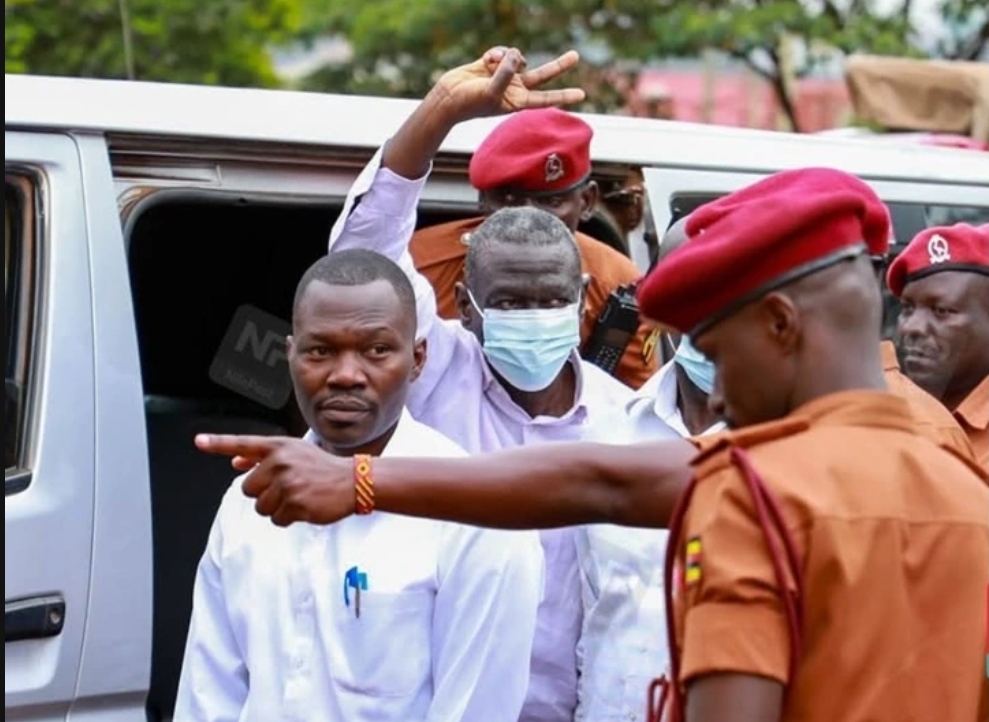Besigye Arrives in Court, Faces Subversion Charges in High-Stakes Nakawa Showdown

Four-time Ugandan presidential contender Dr. Kizza Besigye and his co-accused, Hajji Obeid Lutale, appeared before the Nakawa Chief Magistrate’s Court on April 30, 2025, for the mention of their high-profile case involving alleged subversive activities.The case has sparked wide national and international interest due to the serious nature of the charges and the political stature of the accused.
The prosecution has charged Besigye and Lutale with treason and misprision of treason under Case Number A0008/2025.
It is alleged that between 2023 and November 2024, the duo, alongside unnamed individuals, engaged in activities aimed at forcefully overthrowing the Ugandan government.
These actions reportedly spanned several countries, including Uganda, Kenya, Switzerland, and Greece—suggesting an international network behind the alleged plot.
Initially, the accused were to be tried by a military court, a move that raised significant legal and human rights concerns.
However, following a landmark ruling by the Supreme Court, the case was transferred to a civilian court in line with the constitutional position that civilians cannot be subjected to military tribunals.
During the latest court session, the prosecution pushed for an application to access and extract data from the mobile phones of the accused.
This is intended to strengthen the ongoing investigation by examining potential communication and coordination with co-conspirators.
The court had previously deferred this application and is now expected to deliver a decision on whether such data extraction will be allowed.
Dr. Besigye’s lawyers raised concerns about his deteriorating health, pointing out that he has been on a hunger strike in protest of what he terms political persecution.
Despite visible signs of frailty, the court declined a request for specialized medical attention, fueling criticism from local and international rights groups.
The unfolding legal drama has drawn the attention of civil society and foreign observers.
Amnesty International and other organizations have called for the Ugandan government to respect human rights and uphold judicial independence.
The case is seen by many as a test of Uganda’s commitment to democratic principles and fair trial standards, especially ahead of the next election cycle



0 Comments